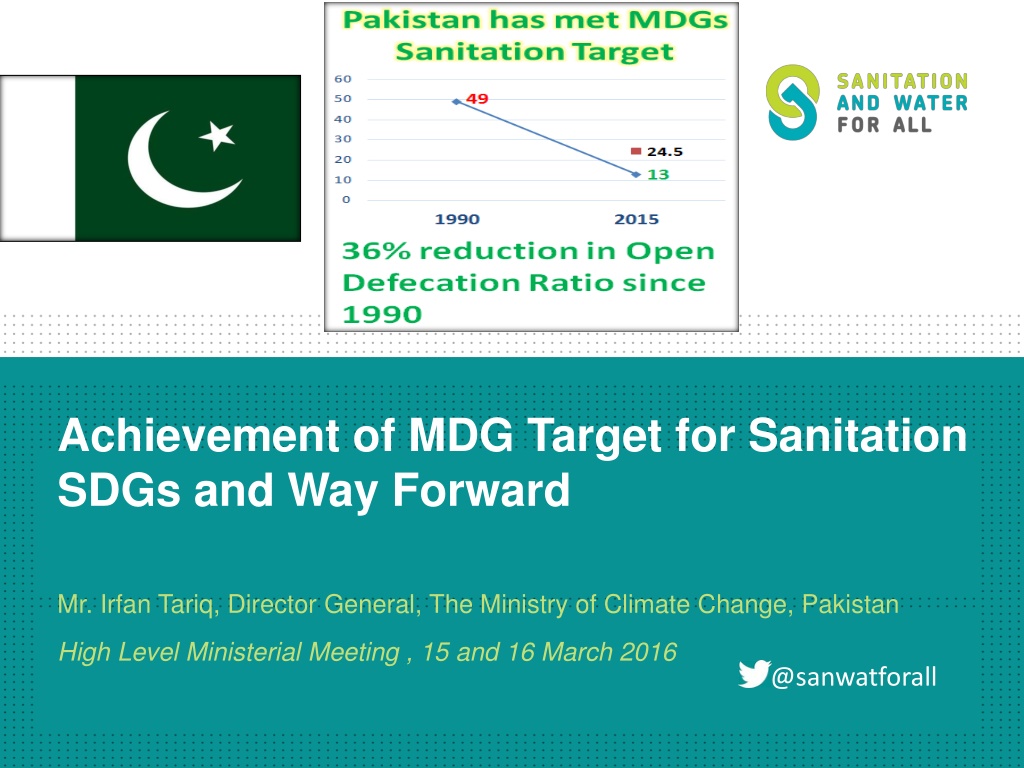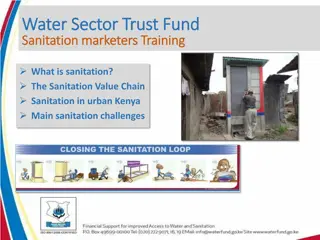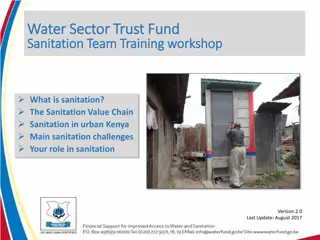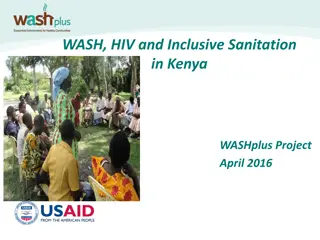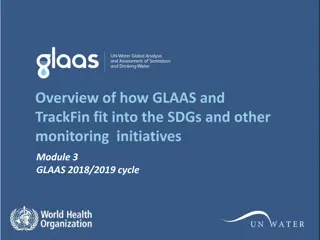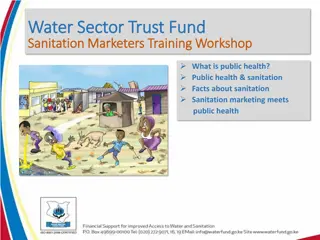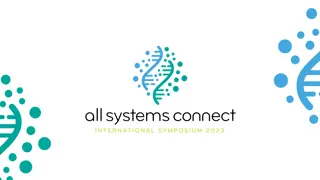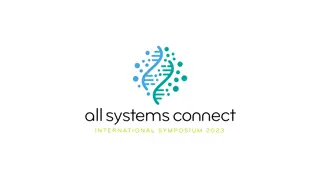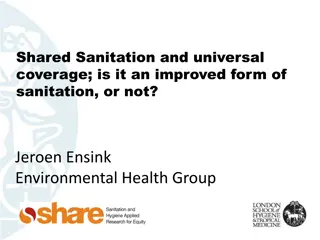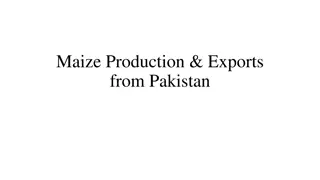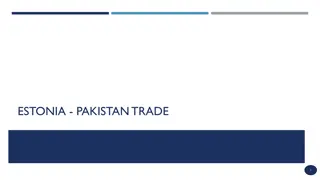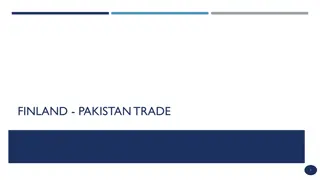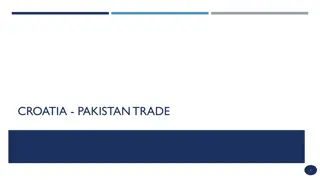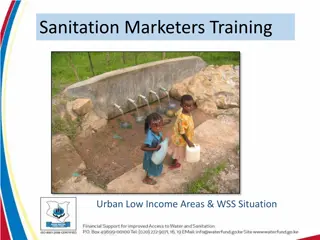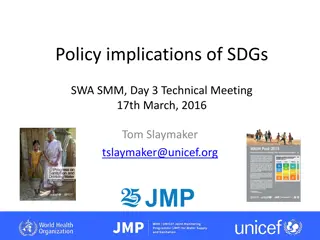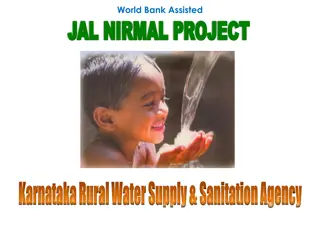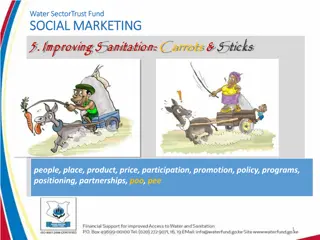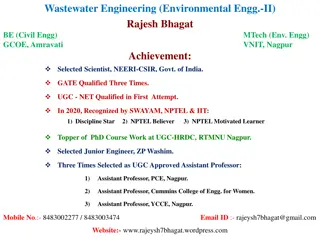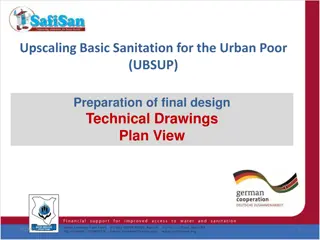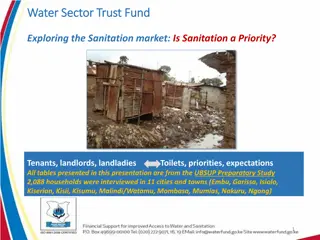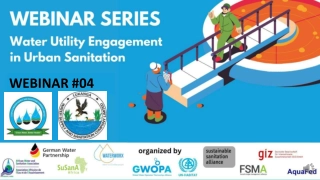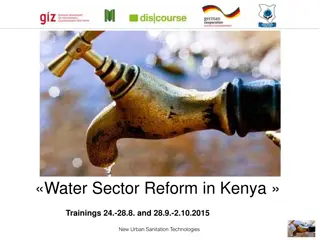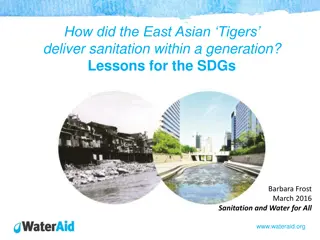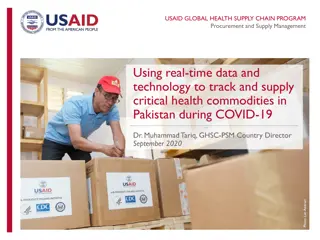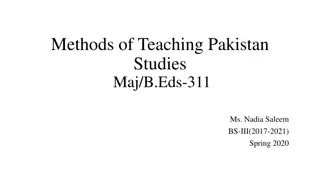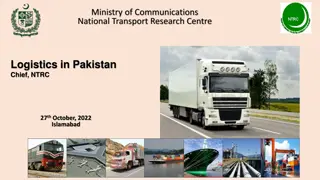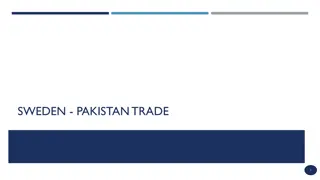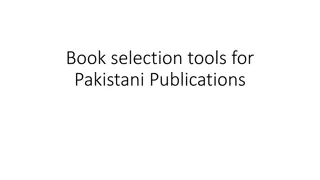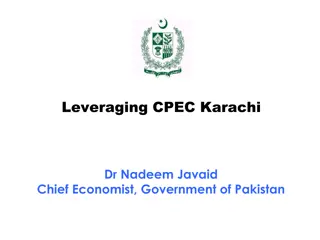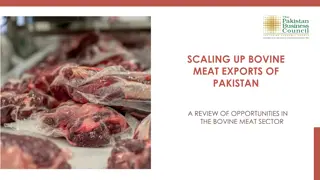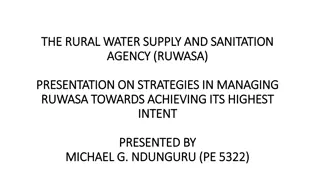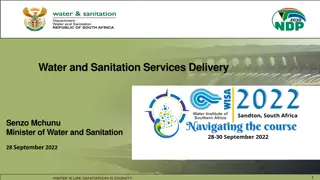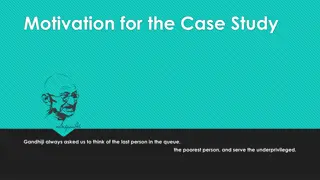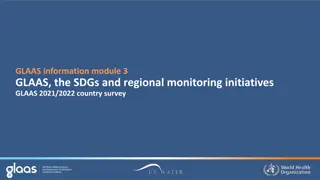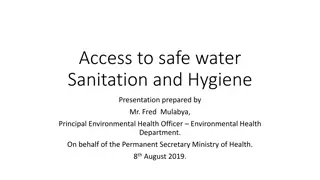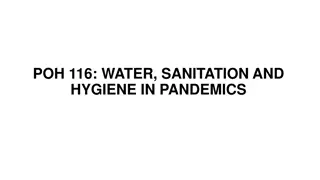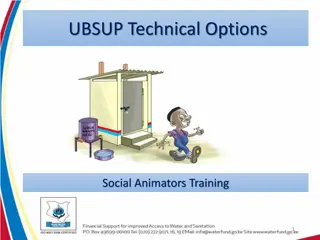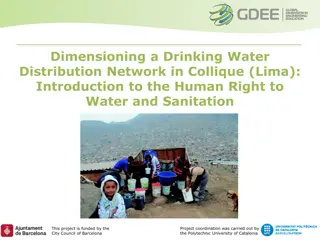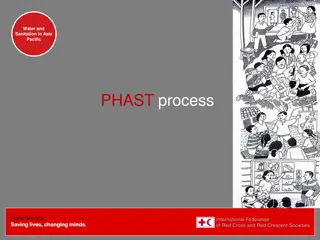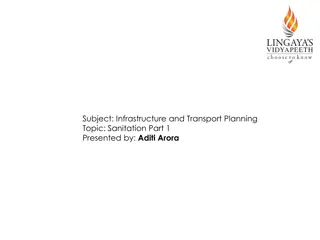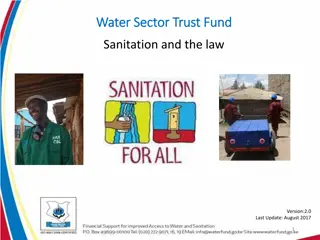Achieving MDG Target for Sanitation: Pakistan’s Success Story and Future Directions
Pakistan successfully achieved the MDG target for sanitation in 2015 through the Pakistan Approach to Total Sanitation (PATS), impacting millions living in Open Defecation Free (ODF) communities. The National Strategy for Reducing Open Defecation (PACOSAN II) and provincial WASH sector roadmaps are key initiatives for sustainability. Leveraging government systems and aligning strategies with SDGs are crucial for scaling up progress. Future steps include aligning new targets with SDGs and strengthening government systems to ensure continued success.
Download Presentation

Please find below an Image/Link to download the presentation.
The content on the website is provided AS IS for your information and personal use only. It may not be sold, licensed, or shared on other websites without obtaining consent from the author. Download presentation by click this link. If you encounter any issues during the download, it is possible that the publisher has removed the file from their server.
E N D
Presentation Transcript
Achievement of MDG Target for Sanitation SDGs and Way Forward Mr. Irfan Tariq, Director General, The Ministry of Climate Change, Pakistan High Level Ministerial Meeting , 15 and 16 March 2016 @sanwatforall
The issue we sought/seek to address Sought to address: Taking Rural Sanitation at Scale in Pakistan MDG Target for sanitation has been achieved in 2015 Pakistan Approach to Total Sanitation (PATS) has changed lives of millions of Pakistanis who live in ODF communities now National Strategy to Accelerate Reduction in OD PACOSAN II Provinces defining WASH sector road maps Seek to address: Sustainability Check Study to inform WASH programmes ensure sustainable WASH services Regular Joint Sector Reviews to identify bottlenecks and inform WASH Theory of Change Define indicators, develop and roll-out strategies to meet SDG targets ODF Punjab by 2018 2
What we are doing/did to address the issue Took opportunity of 2010 flood to conceive and launch Pakistan approach to total sanitation (PATS) Provincial governments rolling out PATS with government funding Provincial WASH Sector Master Plans are being with convergence to other important sectors e.g. Nutrition for reduction in stunting WASH TOC being jointly reviewed National government in Policy formulation, coordination and reporting role 3
Outcomes/ lessons learnt/ next steps Pakistan achieved MDG target of sanitation in 2015 Using and strengthening the government systems is key to go at scale Alignment of new targets, strategies and PATS programmes with SDGs 4
Background for discussions - not to be presented Ideas on planning and reviewing progress of the SDGs Suggestions for a global review of progress Steps already undertaken to plan for the SDGs WASH related- Parliamentary task force on SDGs, Use SDGs and agreed indicators as framework to monitor progress Broader process-Engaging the sector stake holders, consultative workshops, finalizing the indicators and setting the targets Monitor and report progress biannually Conduct annual Joint Sector Reviews Use WASHBAT for JSR, JMP to monitor outcomes and GLAAS to monitor processes Leadership of process/ steps/ MoCC Custodian of WASH mandate Provinces developing sector master plans Align Global commitments with regional and national priorities 5
Template 3: Bullet points list Learning from other countries: Key topics and countries we would like to learn about High Level Ministerial Meeting , 15 and 16 March 2016 @sanwatforall
Learning from each other We would like to hear more of/ from the following: 1. Priority building blocks Institutional arrangements Planning, monitoring and review 2. Priority thematic issues Private sector involvement and innovation Equitable financing mechanisms for WASH 3. Countries Sri-Lanka Institutional arrangements and institutional WASH 7
